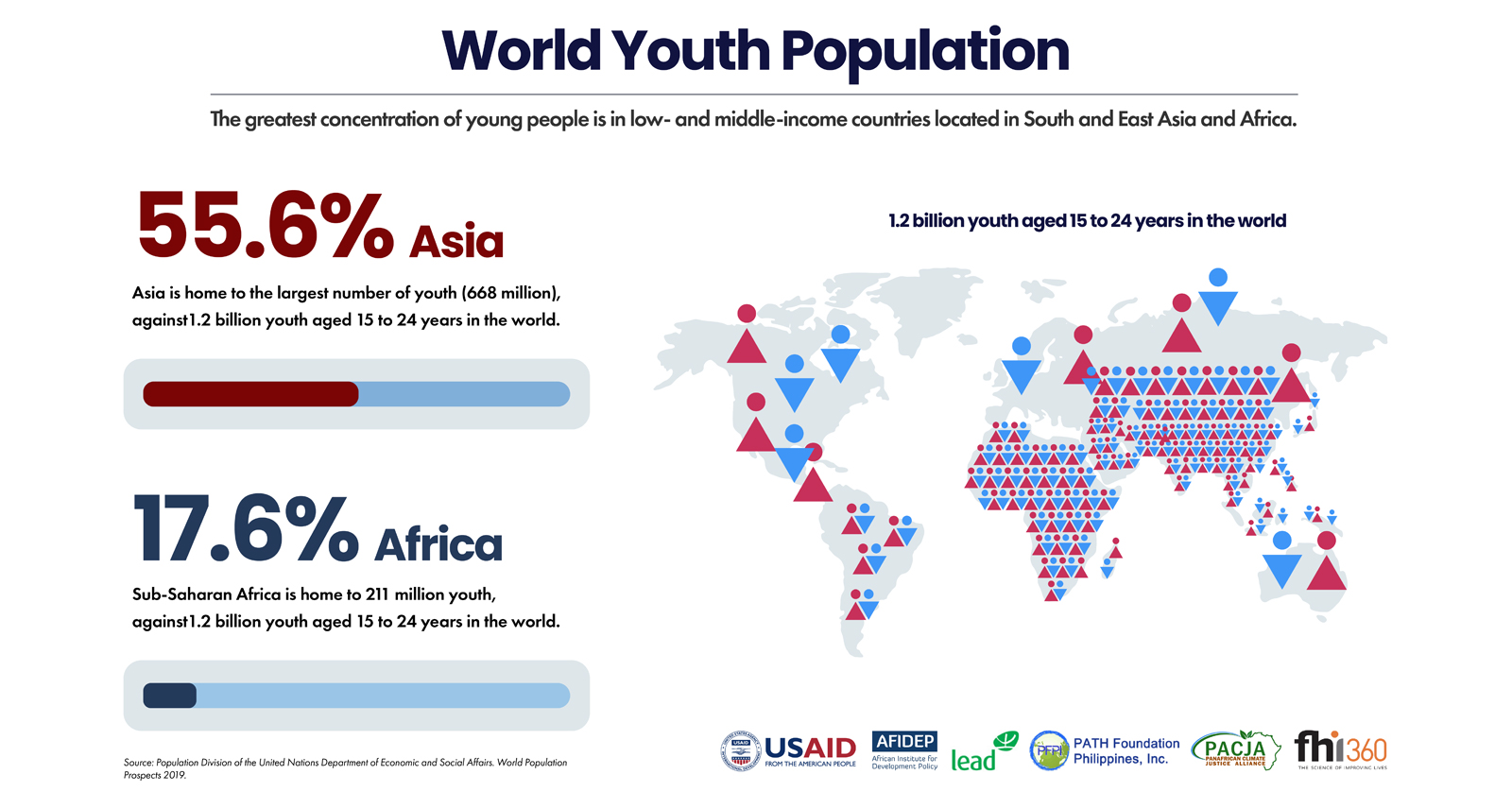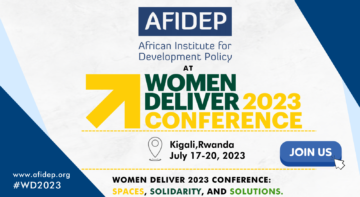Blogs

Whether it is COVID-19 or the climate crisis, our collective future is at stake. These global challenges demand that we look past national borders and beyond our lifetimes. The disproportionate impact of the COVID-19 global pandemic on young people is threatening the prospects of the youth to reach their full potential of becoming productive members of society. According to an Organisation for Economic Co-operation and Development policy brief, indicators show that the youth will shoulder much of the long-term economic and social consequences of the pandemic.
In commemorating this year’s International Youth Day 2021, we look at the theme “Transforming Food Systems: Youth Innovation for Human and Planetary Health”, reminding all that the success of such a global effort will not be achieved without the meaningful participation of young people.
According to the United Nations (UN), in 2020, 15.3% of the global population (7.8 billion) was aged between 15-24 years, with three in 10 people – 32.9% of the global population aged under 25. Compared to other world regions, low- and middle-income countries located in Africa and South and East Asia have the greatest concentration of young people. This youthful population is the region’s greatest resource if the appropriate investments are made in these key areas – education and skills development, human and planetary health, economic reforms and job creation, and good governance. These areas make up the structural pillars of harnessing a demographic dividend, which is the economic growth potential of a country that could result from the change in population age structure from one dominated by children to one dominated by working-age adults.
Young people are an important population cohort for the development of a country and therefore the interests and needs of this youth generation are important, not only because they are many, but because they have unique needs such as decent work and livelihoods. Achieving this will be challenging in an era of health and ecological stress. From a development perspective, today’s young people are on the front line – they not only have to cope with the effects of environmental degradation and climate change, which is likely to accelerate and intensify during their lifetimes and those of their children but also the additional short and emerging long-term impacts of the COVID-19 pandemic.
According to the UN, during the 2021 ECOSOC Youth Forum (EYF), the issues and priorities highlighted by young participants included the impact of the COVID-19 as it relates to its effect on human health, the environment, and food systems. There is a need for inclusive support mechanisms that ensure youth continue to amplify efforts collectively and individually to restore the planet and protect life while integrating biodiversity in the transformation of food systems. With the world’s population expected to increase by 2 billion people by 2050, development stakeholders agree that simply producing a larger volume of healthier food more sustainably will not ensure human and planetary wellbeing.
Youth in developing countries play an important role in tackling the challenges on access, availability and use of food worldwide with more population growth, urbanisation, globalisation and climate change ahead. Bearing this in mind, youth inclusion in contributing to climate-smart agriculture practices is essential to improving sustainable food security.
Young people can lead in the transformation of food systems if they are given opportunities and supported. Food policy and food systems analysts have called for a thorough transformation of food systems, to support improved food and nutritional security, equity, socio-economic justice, ecological sustainability within “planetary boundaries,” and other sustainable development objectives. Any such transformation will challenge society, researchers and decision-makers to grapple with complex and dynamic interactions, and to negotiate trade-offs between contending values, priorities and entrenched interests. Moreover, to abate aggravating intergenerational disparities occasioned by the pandemic, we must ensure that young people are not overlooked in the rollout of interventions in response to COVID-19.
This article is written as part of the BUILD program (Building Capacity for Integrated Family Planning & Reproductive Health and Population, Environment and Development Action) which seeks to achieve strong political commitment, sustained financial resources and accountability for voluntary family planning and reproductive health through:
- Strengthening individual and institutional capacity in advocacy, policy communication and negotiations.
- Increasing commitment for cross-sectoral Population, Environment and Development (PED) approaches which integrate population, health, environment, climate change, resilience, food security, water, livelihoods, economic growth, education and governance.
Related Posts





